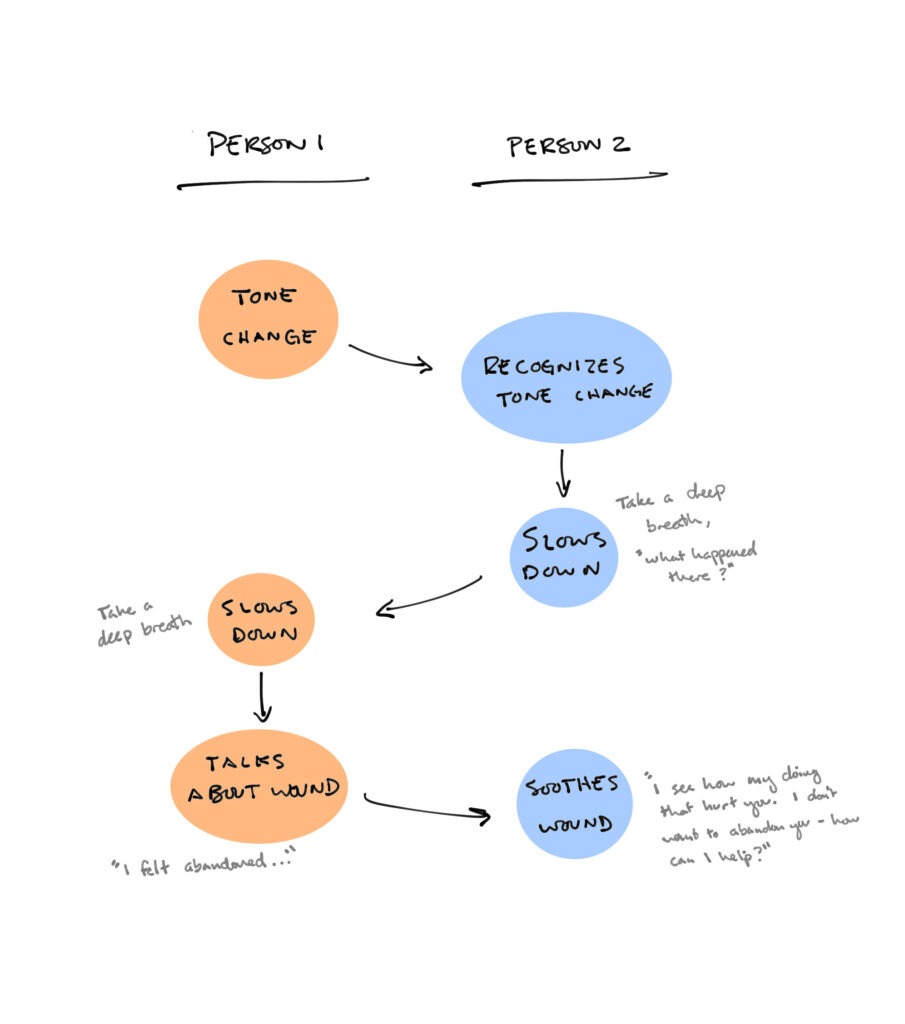Just as the coronavirus continues to occupy our minds and restrict our daily lives, your children’s lives have also changed, which may lead them to worry, feel sad or disappointed, or even act out. It’s important you know how to talk to your kids about the coronavirus, and support them in this complicated time. This conversation will likely not happen just once; as new updates come almost daily, you will have to continue to answer your child’s questions.
It may feel overwhelming to try and talk to them about what is going on, when we are all feeling the pressure of this unique time in history. You may wonder how you can answer any of their questions when you have so many of your own. Make sure you are feeling calm and clear-headed when you talk with your children.
Your kids will read more from your body language than your words.
Children take their cues for how to feel about something from your body language even before they learn to talk. If you feel panicked or overwhelmed, they will know it. It’s ok to be honest with your children that you feel scared, sad, or confused too, but there’s a big difference between calmly telling your child you feel scared, and showing them how scared you are.
Don’t Say Nothing
Chances are, if your child is above the age of even 4 or 5, they know what is going on. They recognize that they aren’t going to school or seeing their friends, and that life is different. If you don’t address the changes in their lives with them, they may feel even more uncomfortable – silence is scary.
Talk to them about:
- What the coronavirus is
- What symptoms may look like in a child
- How, though some people may die, that children likely only get mild symptoms
- Emphasize that your family will be ok
- For a younger child, that may sound like, “Daddy is going to take care of you.”
- For an older child, that may sound like, “We’ll be safe as long as we practice the plan together.”
- How there are really smart people making decisions about how to deal with the virus, what to do about school, and giving us advice about things we can do at home
- Their feelings
- Things they can do to help
- For more ideas or information, check out the CDC’s guidance for more facts and details you can share with your child
Let’s focus in on talking to your kids about their feelings. Not being able to go to school, a friend’s birthday party, or possibly their own graduation or promotion are losses, and your kids may feel the same grief, loneliness, and anxiety that you do.
For children, when they aren’t able to talk about their feelings, it can show up in other ways, like tantrums, arguments, and not following directions. Providing a supportive emotional environment is one way of minimizing these kinds of behaviors. Consider having a weekly check-in with each of your children individually, to listen to how they are feeling, answer any questions, and provide them support.
Also make sure to help your kids find little things they can do to take down the coronavirus. Make sure they are washing their hands often, and have any child older than 7 help you with cleaning around the house. You can even put on superhero capes and a theme song, and teach them that cleaning is what we can do to fight illness.
Don’t Say Everything
While silence is scary, so is too much information. Children can only handle so much detail and complexity, and how much you share will depend on your child’s age and emotional maturity. Your toddlers won’t need much of a conversation, while your teenagers can handle most of the truth. In the video attached to this blog, you’ll see me role playing one example of how you might speak with an 8 year-old child.
One rule of thumb to help guide you would be to let them lead the discussion. Don’t give more information than what they are asking for, and address their concerns calmly. Make sure to ask them how they are feeling, and leave space for whatever they share.
Avoid any blaming language about other cultures, people in the community, or governmental figures. Now is not the time to teach your kids about your political affiliation. Children are meant to feel safety and trust in their authorities, and the complexities of determining what authorities to trust are not something they should have to deal with until their teen years.
What if I don’t know the answer?
It’s ok to admit you don’t know everything. You can tell your child you will look into it, and get back to them. If no one knows, you can tell them that everyone is asking that question and we are all not sure, but we are in this together. Remember, the focus is on staying calm.
Will you do me a favor?
Take care of yourself today. Parents are at the front lines, day in and day out, to raise the next generation. Parenting is hard, and parenting when something like the coronavirus hits can be even harder. If you aren’t taking care of yourself, be that physically, emotionally, mentally, spiritually, or relationally, you can’t lead your kids. When I do sessions with parents, I like to end the session by asking them to do me a favor – do one nice thing for yourself today. And let me know how I can help. We’re all in this together.
Ashley Holcomb, PsyD
I help individuals and couples overcome the patterns that keep them from experiencing closeness in relationships.









